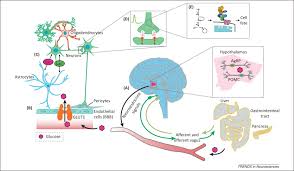 Most people eating a Western diet have a sweet tooth. There is little doubt that we eat more sugar than our bodies require for optimal health. In fact, we eat so much sugar that the effects have negatively impacted our health in the past several decades.
Most people eating a Western diet have a sweet tooth. There is little doubt that we eat more sugar than our bodies require for optimal health. In fact, we eat so much sugar that the effects have negatively impacted our health in the past several decades.
On average Americans eat 130 pounds of sugar every single year. The American Heart Association recommends no more than 9.5 teaspoons per day but the average adult eats 22 teaspoons per day and the average child 32 teaspoons every day. These numbers are staggering. But they are even more amazing when compared against the amount of sugar Americans were eating in the 1820s, which was LESS THAN 20 pounds per year!
The biggest culprits in the American diet are soft drinks, candy, cakes and cookies, fruit drinks, dairy desserts and milk and grains. For instance, when you compare the sugar content of a 12 oz can of soda you’ll find that it contains more than 2 frosted pop tarts and a twinkie combined. AND the average American will drink 53 gallons of soft drinks per year!
Our body will use sugar and fructose to manufacture blood glucose, but it will also use other carbohydrates as well.
As the amount of blood sugar increases, the body produces and excretes insulin. This hormone is used to transport the blood glucose across the cell membrane so the cells can use the glucose as energy. Only the brain and liver use a different transport system that is not insulin dependent and so receive glucose for energy even when there is no insulin in the body.
Unfortunately, insulin not only encourages the body to use glucose for energy, but it also encourages the body to store extra fat. Not good news for those who are trying to lose weight. The amount of calories you eat is not always a good indication of how well your body will burn calories and lose fat. Sometimes it’s also the kind of calories you’re eating.
Today 32 percent of Americans eating a Western diet are obese and another third are over weight. The extra weight adds risk to developing kidney disease, metabolic syndrome, diabetes, heart disease, visceral fat and stroke.
Beyond the obvious fat deposits and weight gain, the body also experiences other physiological responses to sugar which have a negative impact on your health. Eating foods that turn into sugar in the body, like breads, french fries, white rice and candy, will increase the amount of inflammatory cytokines. These messengers act on other cells to coordinate responses in the body.
There are both inflammatory cytokines and noninflammatory cytokines. Sugar increases the release of the inflammatory type. These messengers are normally used to help the body deal with a health threat, which is how the body interprets the addition of large amounts of sugar.
The result of the inflammatory response can affect your eye sight, contribute to the development of diabetes, increase cholesterol levels, feed cancer cells, contribute to eczema in children and decrease the secretion of growth hormone which is the key to your body staying youthful and lean.
Resources:
Forbes: How Much Sugar are American Eating
http://www.forbes.com/sites/alicegwalton/2012/08/30/how-much-sugar-are-americans-eating-infographic/
Natural news: The Harmful Effects of Sugar and Choosing healthy alternatives
http://www.naturalnews.com/022692_sugar_xylitol_stevia.html
Mercola: Fructose: This addictive commonly used food feeds cancer cells, triggers weight gain, and promotes premature aging
http://articles.mercola.com/sites/articles/archive/2010/04/20/sugar-dangers.aspx
Harvard: What you eat can fuel or cool inflammation
Mayo Clinic Health Letter: Buzzed on Inflammation
http://healthletter.mayoclinic.com/editorial/editorial.cfm/i/163/t/Buzzed%20on%20inflammation/
American Diabetes Association: Is glucose control important for prevention of cardiovascular disease in diabetes
http://care.diabetesjournals.org/content/36/Supplement_2/S259.extract
NBC: Cut back, way back, on sugar, says heart group
Authority Nutrition: 10 Disturbing Reasons Why Sugar is Bad for you
http://authoritynutrition.com/10-disturbing-reasons-why-sugar-is-bad/
Dartmouth Undergraduate Journal of Science: The Physiology of Stress
British Journal of Nutrition: The initial physiological responses to glucose ingestion in normal subjects are modified by a 3 day high fat diet
The Journal of Physiology: Physiological Responses to Hypoglycemia
http://jp.physoc.org/content/582/2/475


Leave a Reply